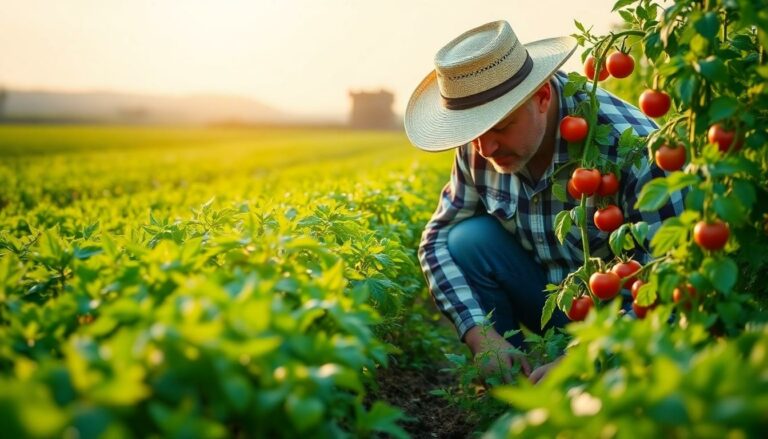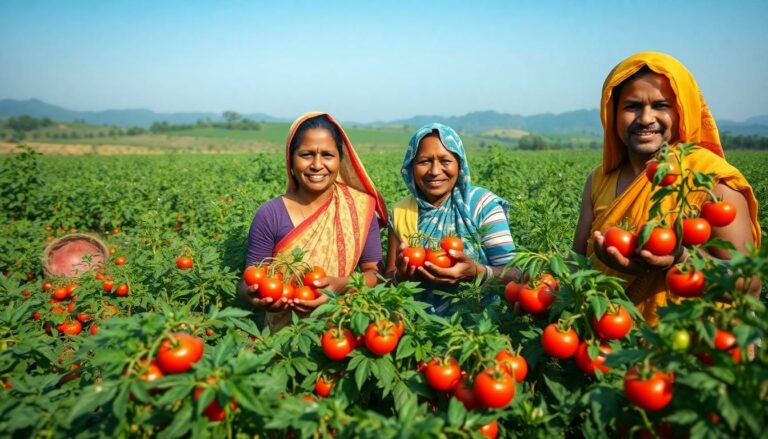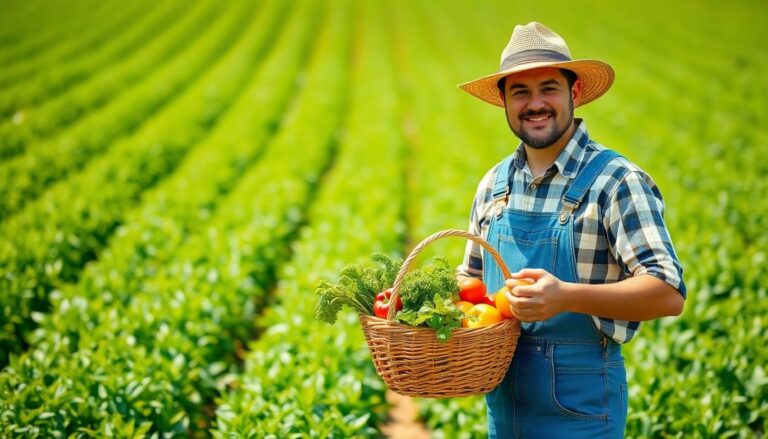In a world where kale is king and avocados reign supreme, the debate over organic farming’s sustainability is heating up faster than a compost pile in July. Many believe that organic farming is the holy grail of eco-friendly practices, but is it really? As consumers clamor for that pristine label, it’s time to dig deeper and separate fact from fiction.
Organic farming promises a greener future, but it’s not all sunshine and rainbows. From soil health to crop yields, the complexities of organic practices can leave even the most dedicated earth-lover scratching their head. So, is organic farming a sustainable solution or just another trend in the ever-changing landscape of agriculture? Get ready to explore the ups and downs of this green movement and discover whether it truly stands the test of time.
Is Organic Farming Sustainable
Organic farming emphasizes sustainable practices aimed at preserving the environment and enhancing soil health. This agricultural approach prioritizes natural inputs over synthetic chemicals.
Definition of Organic Farming
Organic farming refers to an agricultural system that focuses on growing crops and raising livestock without the use of synthetic fertilizers, pesticides, or genetically modified organisms. This system promotes biodiversity by maintaining ecological balance. Regulations often require certified organic operations to follow specific guidelines to ensure integrity, including crop rotation and organic pest management techniques. Additionally, organic farming strives to create healthier ecosystems, benefiting both consumers and the environment.
Key Principles of Organic Farming
Organic farming follows several key principles aimed at sustainability. Crop rotation enhances soil fertility and interrupts pest cycles. Biodiversity fosters resilience against diseases and pests. Furthermore, organic farming prohibits synthetic inputs, encouraging the use of natural alternatives such as compost and cover crops. Soil health remains a primary focus, with practices designed to maintain its structure and nutrient content. Lastly, animal welfare standards ensure livestock are raised ethically, promoting overall farm sustainability.
Environmental Impact

Organic farming has significant effects on the environment, particularly in soil health and biodiversity. These aspects play a crucial role in determining the sustainability of organic practices.
Soil Health and Fertility
Soil health is a cornerstone of organic farming. Using natural inputs like compost and cover crops, organic farming enhances soil fertility. These methods promote the presence of beneficial microorganisms, improving nutrient cycling. With practices such as crop rotation, organic farmers prevent soil depletion and enhance its structure. Well-managed organic systems show higher levels of organic matter, leading to improved water retention and reduced erosion. Data from the USDA indicates that organic soil can store up to 55% more carbon compared to conventional soil, contributing to climate change mitigation.
Biodiversity and Ecosystem Services
Biodiversity thrives in organic farming systems. Utilizing diverse crop rotations and intercropping techniques fosters ecological resilience. These practices provide habitats for multiple species, including pollinators and natural pest controllers. Furthermore, organic farms maintain higher levels of beneficial insects compared to conventional farms, which rely heavily on pesticides. Research shows that increased biodiversity leads to enhanced ecosystem services, such as improved pollination and soil health. This interconnectedness between species supports not only agricultural productivity but also overall environmental stability.
Economic Aspects
Economic factors significantly influence the sustainability of organic farming. Analyzing costs and market demand reveals the complex nature of this agricultural approach.
Cost of Organic Farming
Organic farming often entails higher initial expenses compared to conventional practices. Materials like organic fertilizers and pest control solutions cost more, contributing to overall operational costs. Labor-intensive methods used in organic systems demand more time and effort, potentially increasing payroll expenses for farmers. Despite these higher costs, many organic farmers achieve premium prices for their products, thus enhancing profitability. Long-term benefits may include reduced input costs through improved soil health and increased resilience against climate-related impacts.
Market Demand for Organic Products
Market demand for organic products has surged in recent years. Consumers show a growing preference for health-conscious and environmentally friendly choices, driving up sales. In 2022, organic food sales reached approximately $59.2 billion in the United States, reflecting this rising trend. Supermarkets and specialty stores increasingly allocate shelf space for organic goods, making them more accessible. The expanding market provides opportunities for organic farmers to connect with both local and global consumers, ensuring a steady flow of income. Anbieter relationships also matter, as partnerships with restaurants and food distributors can enhance visibility and sales potential for organic products.
Social Implications
Organic farming significantly influences social structures and community dynamics. The integration of organic methods fosters community involvement and enhances consumer health.
Community Involvement and Impact
Organic farming encourages local engagement through community-supported agriculture (CSA) models. These models connect consumers directly with farmers, bolstering local economies. Participants often gain access to fresh produce while also supporting sustainable practices. Farmers markets become hubs for community interaction, enhancing awareness of food sources. Educational initiatives promote knowledge about organic practices, helping to cultivate an informed consumer base.
Health Benefits for Consumers
Health benefits associated with organic farming garner substantial attention. Organic products typically contain fewer pesticide residues, promoting a safer food environment. Many consumers report improved well-being after incorporating organic foods into their diets. Nutritional content can also stand out in organic produce, with studies suggesting higher levels of certain vitamins and antioxidants. Enhanced health perceptions drive demand, establishing organic foods as a preferred choice for health-conscious consumers.
Challenges to Sustainability
Organic farming faces several challenges to its sustainability, which can complicate its perception as an eco-friendly practice.
Pesticide Use in Organic Farming
Pesticide use remains a notable concern within organic farming. While organic practices restrict synthetic pesticides, they still permit certain natural pesticides, which can pose risks to non-target species. Performance of these natural alternatives varies widely, impacting effectiveness. Some organic farmers may rely on these substances more heavily than anticipated, leading to potential ecological disruption. Compliance with organic standards doesn’t guarantee that crops remain free from pesticide residues, especially if neighboring farms employ synthetic chemicals.
Climate Change Effects
Climate change notably influences organic farming practices. Increased weather variability threatens crop production significantly, resulting in reduced yields under certain conditions. Organic farms may struggle more than conventional farms in adapting to extreme weather events, such as droughts and floods. Moreover, organic systems often require more land, which can lead to deforestation if not managed sustainably. Balancing the need for increased food production with environmental preservation becomes essential in the face of changing climate conditions.
Balancing Agricultural Productivity
The sustainability of organic farming remains a multifaceted issue. While it promotes practices that enhance soil health and biodiversity, challenges like pesticide use and climate change can complicate its eco-friendly image. Balancing agricultural productivity with environmental stewardship is crucial for the future of organic farming. As consumer demand for organic products continues to rise, the industry must address these complexities to truly fulfill its potential as a sustainable agricultural practice. The path forward involves not only innovation and adaptation but also a commitment to ethical and sustainable farming principles.




